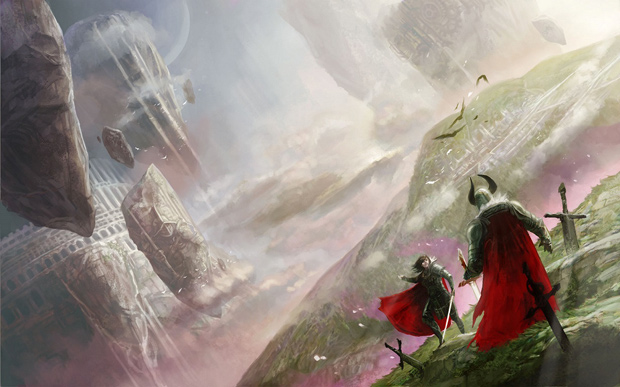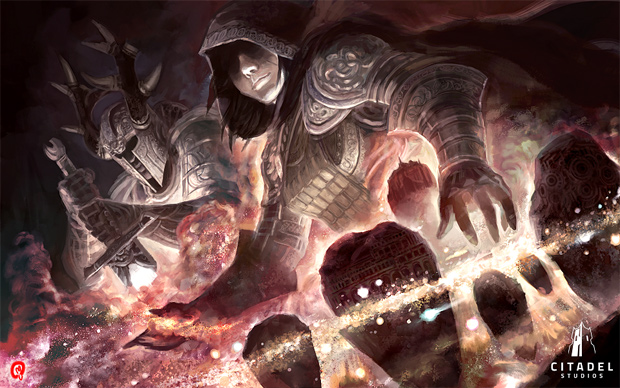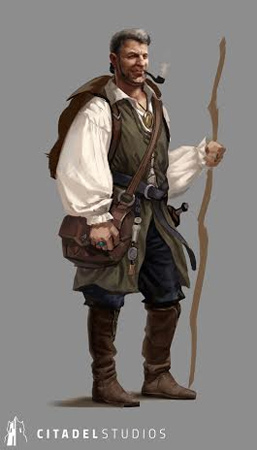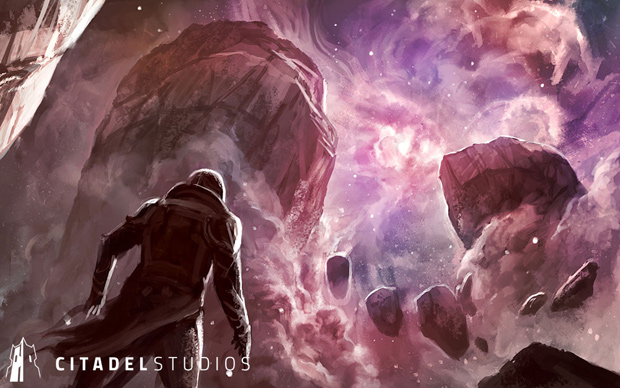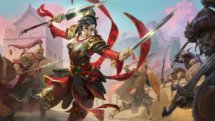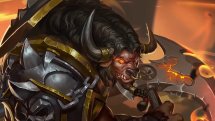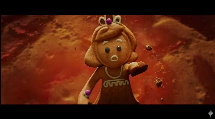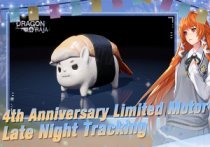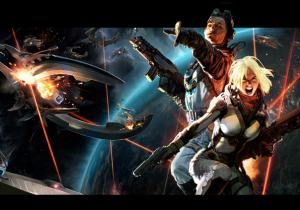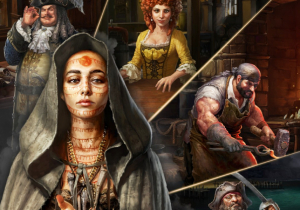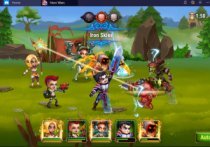Shards Online Dev Interview – The Modded MMO Revolution

By W.B. Wemyess (Tagspeech)
The future of the MMORPG genre has been a hotly debated subject for years. It’s no secret that the games have come a very long way from their more open-ended origins in the late 90’s and early 2000’s. The design direction of WoW, a game that’s more tightly controlled and managed by its developers, has influenced the entire genre. The concept of the ‘theme park’ game has never been more widespread and dominant – these are games that funnel players through a carefully controlled and designed progression in a carefully controlled and well-organized world. We all do the same quests, the same tasks, the same raids, and the same instances. Few question it.
In the past two years, as the monumental success and popularity of sandbox titles like Minecraft began to shake up the preconceived notions of publishers and other ever-hungry profit gods, it’s becoming a much more widely accepted notion that players actually want freedom in their games. A lesser example is the popularity of Skyrim, a single-player RPG noted for its extensive modding capabilities and open-ended gameplay. People like forging their own path and doing things at their own whim. This makes sense. People are not livestock to be prodded through narrow corridors, lined up at proverbial troughs and made to eat. Never has criticism of the ‘theme park’ profiteering model been more under fire. Developers and publishers are responding.
In the world of indie development, the effort to break away from the old models has been going on far longer. One such effort is the one being made at Citadel Studios, a company with an incredibly wizened and experienced pedigree in the MMORPG field. I recently had the pleasure of sitting down and watching a demo of their upcoming title, Shards Online, guided by a man by the name of Derek Brinkmann – he was a lead in the development of Ultima Online, a name that should be synonymous with the very concept of the MMORPG among old-school gamers and long-time fans of the genre. UO was marked by many to be the very beginning of the genre, and it was known for being more of an open-ended sandbox than a tightly-controlled playground.
Derek, along with two of his peers, were once a big part of a studio called Mythic – more veterans of the genre will recognize that as the studio responsible for Dark Age of Camelot, and the (unfortunately) unsuccessful Warhammer Online. DaoC at least was a huge hit during its time, and beloved by realm vs. realm PVPers for its deep, open-ended gameplay and strong focus on persistent world PVP and tri-faction conflict. This background might lead us to believe that Shards Online is going to be another PVP-centric MMORPG to add to the overflowing pile of games in the MMO lineup, but the ambitions of the team at Citadel Studios are far higher than just doing the exact same thing everyone else is doing and praying for success. The definition of insanity, after all, is doing the same thing over and over and expecting different results.
Shards Online is intended to be the Next Big Thing in terms of moving the MMORPG-sphere forward and into the hands of player developers. They’re developing a new kind of technology that will allow them to connect player-made worlds together. A single Shard is a player-made world, a world made using their engine, that can support about sixty-four players. A cluster is a group of shards connected on the network to form one large microcosm that shares an agreed-upon ruleset. These rules can be anything the players imagine. Do you want to get together and create a survival-centric MMORPG with no factions, hunger, thirst, etc.? Do you want a DOTA-style game set in an open-world? Do you want your camera to be over-the-shoulder? Isometric? Top-down? Do you want to just rip the game open and play with the code? You can do that, if you have the skill. Most of us don’t.
In fact, most of us are just going to be playing with the game’s already provided editing tools for creating new worlds and rulesets. Assisting us in that is the ability to go into our worlds as “gods” with the capacity to invisibly shape the world, possess NPCs, spawn monsters, etc. What does this mean? Some of you may be familiar with Neverwinter Nights 1 & 2, a pair of games developed by Bioware that sought to give players the ability to run and DM their own Dungeons & Dragons games using purchased servers and special editing tools. Shards was made specifically to cater to the kinds of players who enjoyed that sort of endlessly sandbox-y, player-made experience. The only way to be assured of continuously new and organic experiences is to turn development to the hands of the players themselves, and this is something the creators of Shards Online are keeping in mind throughout the entire development process. The vanilla game is important to them, but the true attraction is the server infrastructure and editing technology being put into player hands.
The gameplay in the base game is very old school, with an emphasis on ability synergies, loadouts, and positioning. But this is something that can be tweaked by persistent and determined players and modders. The vanilla game will contain a huge selection of maps and worlds to explore – but players will be able to design their own, possibly even bring in their own custom art if they have the time and talent to do so. This game is intended to be the opposite of hand-holding, it’s intended to not just be an open-ended experience, but a democratization of the entire MMORPG development process. It is a way for players to truly create a home for themselves and their guild or friends online.
Instancing is minimalized. The developers want ‘homes’ that players might build for themsleves in the game to be structures they just wander into the wilderness and start putting together on their own, in real-time, for all to see. Immersion and persistent realism seem to be design goals brought by this team into Shards Online. The base game’s system for open PVP is taking a page from EVE Online’s playbook, in allowing players to clock NPCs or anyone else for that matter, but suffer immediate consequences if they’re in heavily guarded areas. Players managing their own worlds can of course decide just how “wild west” they want it to be.
The game is currently somewhere between the prototype and alpha stages, but at the time of my viewing, seemed far closer to alpha than prototype. It’s no lie that the game is rough around the edges presently, but for something that hasn’t even emerged into the alpha phase, it seemed to run surprisingly smooth. No doubt the largest hurdle will be UI work and making everything ‘pop’ in order to appeal to the sensibilities of the modern gamer. If talent and experience should inform hopefulness in the development of this game, then I am nothing but optimistic. It’s an ambitious project that deserves recognition, and I have no doubt you’ll be hearing more and more about it over the next year. Keep an eye out. This could be a game-changer.
Tagspeech is the alias of author W.B. Wemyss, who was responsible for the bizarre cyberpunk fever dream called Children of Athena.
Articles You May Enjoy
- Master of Eternity Welcomes Frame Arms Girl Collaboration
- Fans of the anime series Frame Arms Girl can now play as Suits in Master of Eternity, in a new crossover event.
- Vindictus Begins 'Stream That Vindi' Twitch Event
- Vindictus has teamed up with Twitch to host the "Stream That Vindi" event.


